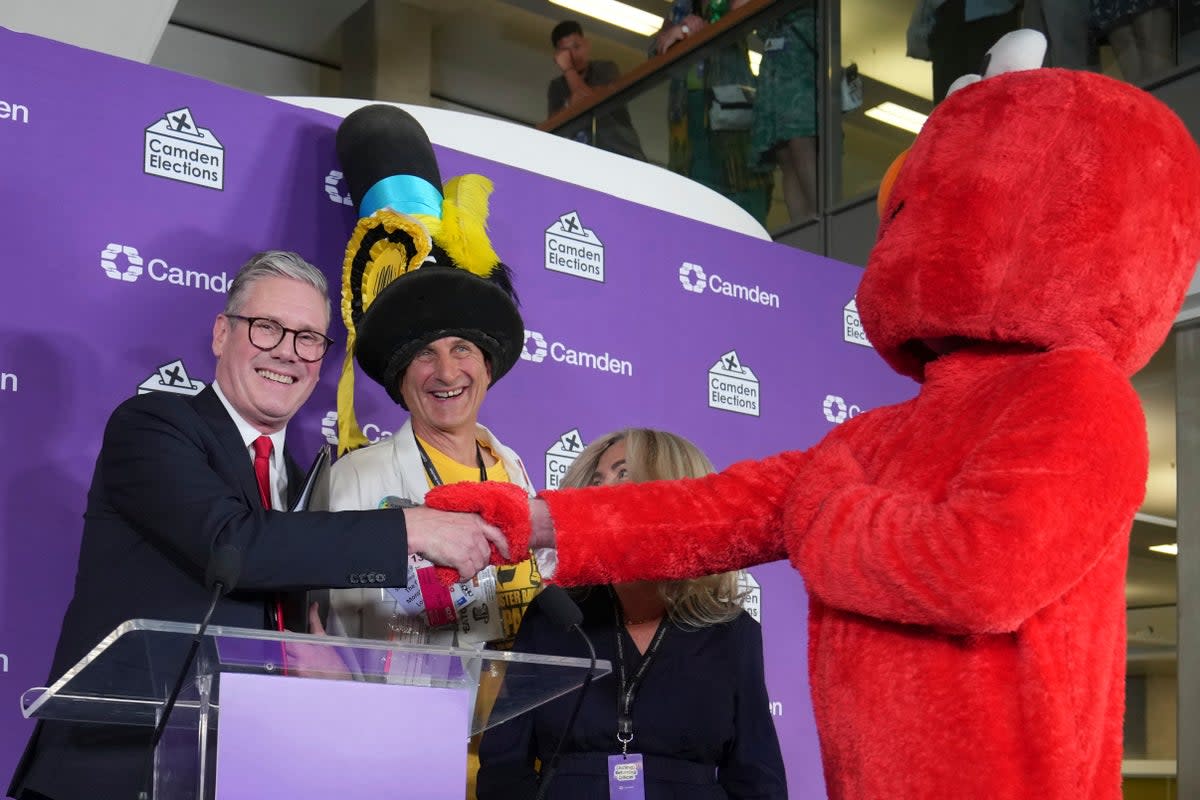Analysis: Why was ‘worrying’ general election turnout so low, and will it ever recover?

Voter turnout is reported to have been the lowest since 2001 in last week’s UK general election, at just 59.9 per cent.
At just 0.5 points above 2001’s low of 59.4 per cent, this year’s election risked falling to a new record, and was among the lowest turnouts in a century.
From 1924 to the year 2000, turnout didn’t dip below 70 per cent. In fact, the highest turnout in the last 100 years was when 83.9 per cent of eligible voters cast their ballots in 1950, when Clement Attlee’s Labour saw its majority shrink from 146 to 5.
But since the turn of the millennium, Britons have not been showing up to vote in such high numbers, and this may just be the new normal.
Between 1997 and 2001, turnout dropped by 12 per cent as Tony Blair’s Labour won both elections. Since then, turnout has been gradually increasing, but only reached a peak of 68.8 per cent in 2019.
Dr Jess Garland, director of policy at the Electoral Reform Society, warns that this level of participation is “worrying” and that there were signs fewer voters would turn out before polling day on 4 July.
“With turnout only slightly above the previous recorded low, this general election has been a worrying one for voter participation. The signs were there before polling day, with many of the conditions for low turnout,” she says.
In the last Techne poll before the election, 7 per cent of people said they were still unsure who to vote for, and a quarter (26 per cent) were not planning to vote at all.
Both the requirement for voter ID and high numbers of undecided voters had an impact, explains Garland.
“Significant numbers of voters were undecided who to vote for right up to polling day, and many voters were facing new voter ID requirements for the first time.”
Despite these figures, Mete Coban, chief executive of the democratic charity My Life My Say, believes that young people did have a voice in this election.
“Although it’s too early to say what the final numbers on youth turnout are, we do know that a significant number of young people engaged with the election,” he says.
“Since the election was called, 1,641,456 people under the age of 35 registered to vote.”
A global picture
While in the UK, the media was flooded with reports of what could be the worst voter turnout in history, similar figures in France inspired a different reaction just a few days later.
As France went into the second round of its legislative elections on 7 July, reports said that the turnout of 63 per cent was the highest in over four decades, since 1981.
By comparison, the 2022 legislative elections in France suffered a record-low turnout of 47.5 per cent in the first round and 46.2 per cent in the second round.
Meanwhile, the United States elections boasted one of their highest ever turnouts in 2020, of 66 per cent.
So what does this mean for the UK? Voter turnout varies widely from country to country, and there is no ideal scenario – albeit higher turnout means more peoples’ views are likely to be democratically represented.
But the UK’s general election turnout may not reach its former highs, which sometimes exceeded 70 or even 80 per cent.
As in other Western democracies in recent years, turnout above 60 per cent may count as a success.
Nonetheless, such a sharp drop – of 7.3 per cent, down from 67.3 per cent in 2019 – suggests that some effort should be made by the government to understand what exactly turned voters away on election day.
Garland also suggests that the UK’s first-past-the-post system discourages some people from participating in elections.
“We know from global evidence that countries with electoral systems based on proportional representation see higher turnout. This is likely to do with the increased competitiveness of contests, and increased voter mobilisation as a result.”
She adds: “With record lows in trust in our political institutions, it is essential that the government tries to rebuild political trust and engagement before the next general election.”


